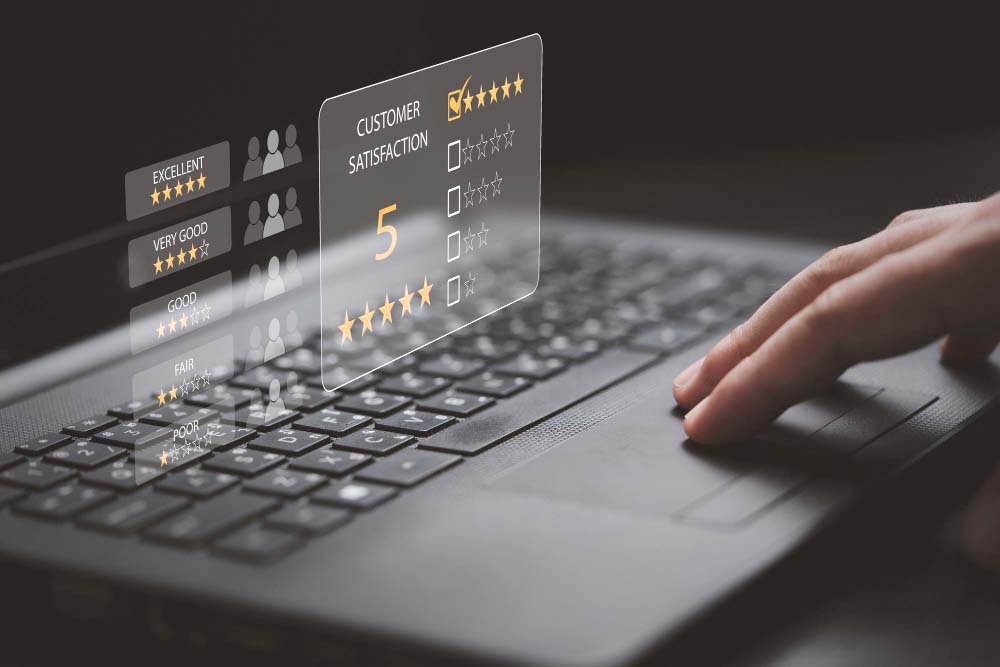Online Reputation Management and How It Impacts Businesses
When people search for or come across a company online, their perception of it is determined by its online credibility. As a result, ORM has a proactive impact on what knowledge people find.
Various tactics and methods, for example, will help you drive negative and harmful content further down the Google SERPs by ranking more favorable content from your own or third-party sources above it. What is the significance of this? Since Google's top five search results earn roughly two-thirds of all clicks.
ORM, on the other hand, isn't just about managing content in search engines. It's all about how to deal with negative customer reviews while also encouraging happy customers to leave more positive feedback.

The value of your online personal and professional image cannot be overstated. The four distinct digital marketing networks involved in ORM, also known as the PESO Model, are listed below.
Paid Media
All marketing campaigns that include payment to feature your company on external websites and networks are classified as paid media. For example, Google AdWords PPC advertisements, Facebook ads and supported posts on industry/influencer websites. By cultivating new partnerships with partners and clients, paid media expands your scope and increases traffic to your web assets.
Media that has been earned
Earned Media
This refers to the coverage of your company on third-party websites for which you did not pay. It necessitates you standing out from the crowd with excellent content, products, or services that users find worthy of sharing, mentioning, reposting, and reviewing.
Social Media
Social networking pages and profiles are "an extension of your brand" that provide "additional ways for people to connect." When it comes to social media properties, it's important to invest the time and energy necessa ry to remain involved in them by participating in discussions and posting new content on a regular basis. As a general rule, not having a profile on a network is preferable to having one that is inactive.
Owned Properties
You own the company's websites and blogs, which means you have complete control over them. Naturally, the more assets you own, the better your chances of successfully establishing an online presence. Simultaneously, you don't want to create uncertainty by establishing properties that aren't distinguishable from one another.

Here's how to start creating and managing a positive online image for your company using these digital marketing platforms:
Make a decision on how you want your online reputation to be. The first step in ORM is to determine what kind of online credibility you want. Do you want to be known as an expert in your field? To take on the position of a market leader? Or do you want to be recognized for your promptness and outstanding customer service?
Examine Your Online Reputation Right Now. You can start by evaluating your current credibility. Inquire of your business partners and customers what they think of when they hear your company's name. What are people's first impressions of you? Is your online credibility in line with your offline reputation? The five resources mentioned below will assist you in researching and evaluating your digital credibility.
Identify What Helps You Achieve Your Reputation Objectives. The next step in establishing an A+ online presence is to implement a solid social media policy. The way an organization and its staff communicate online is referred to as social media policy. Here are some important considerations to make when drafting your policy:
Create a social media content strategy to help you achieve the reputation you want. A social media marketing plan describes the subjects and topics your company or brand needs to concentrate on, the keywords and media styles (articles, video, and podcasts) that will be used, and who will be in charge of content development and delivery (which does not have to be the same person). Here are a few main points to consider when developing the social media marketing plan:
- - Determine your social media objectives
- - Determine which social media platforms would assist you in reaching your ideal customer and achieving your objectives
- - Consider the competitors' social media presence and demographics on social media platforms
- - When Using Social Media Platforms Assign tasks and create a content publication schedule
- - Keep an eye on the results
- - Respect the audience
Blog Posts Will Help Improve Reputation (Owned Media.) The secret to success — high-ranking articles on Google, additional traffic, and high interaction — is to regularly publish valuable material. When you conduct thorough keyword research and create high-quality material, you have a better chance of pushing undesirable content further down the SERPs. Here are a few pointers and resources to help you create high-quality content that promotes your brand:
- - Make Your Headlines More Powerful
- - Use Keywords That Are Important
- - Not for the sake of search engines, but for the sake of readability.
- - Include Photographs
- - Investigate User Metrics

Conclusion
Creating and maintaining your online credibility entails actively influencing how users perceive your business. Choosing how you want your company to be viewed is the first step toward a good reputation.
The four digital marketing platforms that help form your online identity are paid advertising, earned media, owned assets, and, most significantly, social media. Many resources are available to assist with everyday activities such as content development and sticking to a publishing schedule on social media in particular. Remember to have a social media policy and marketing plan in place as well.
If you require online reputation services, kindly get in touch with us.





